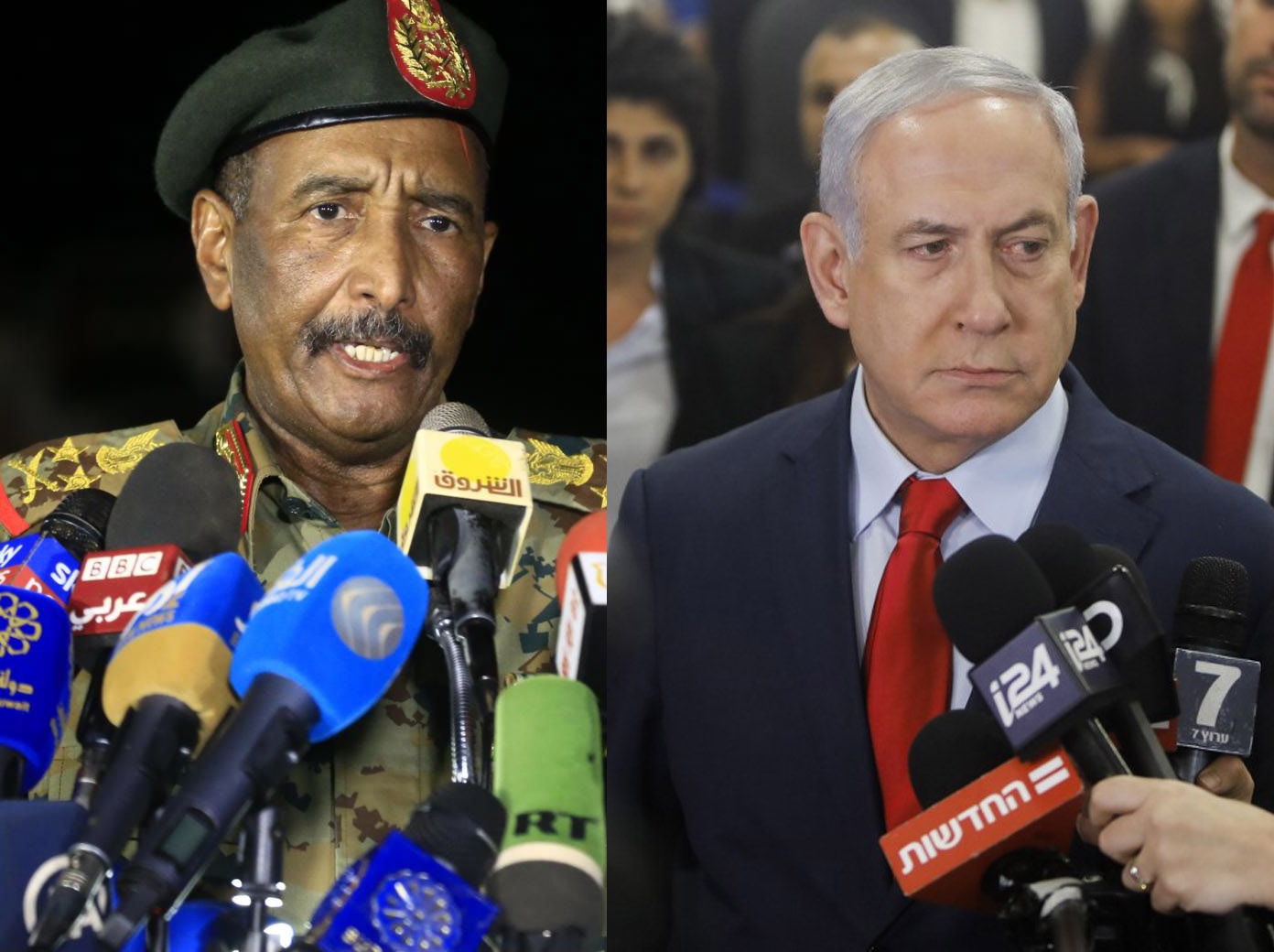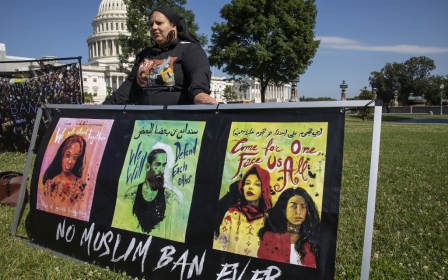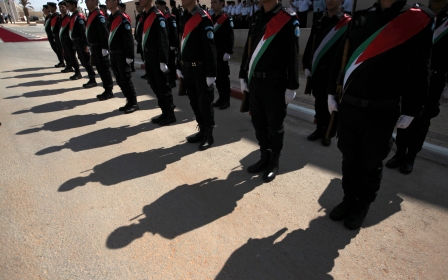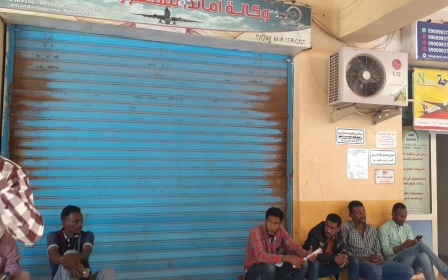Israeli and Sudanese leaders meet in secret, agree to start normalising ties

Israeli Prime Minister Benjamin Netanyahu met in secret with the chairman of Sudan's ruling council on Monday, and the two leaders agreed to start the process of normalising ties, the PM's office said in a statement.
Netanyahu met with Abdel Fattah al-Burhan at the residence of Ugandan President Yoweri Museveni in Entebbe, a meeting that was only made public when the prime minister tweeted about it.
"We agreed to begin cooperation that will lead to the normalisation of relations between the two countries," Netanyahu tweeted in Hebrew. "History!"
Burhan was not seen by reporters who were there to cover Netanyahu's meeting with Museveni, and his trip has not been reported by Sudanese media.
Immediately after the meeting, Netanyahu said he believed Sudan was moving in a "new and positive direction" and that he had made this point to US Secretary of State Mike Pompeo.
New MEE newsletter: Jerusalem Dispatch
Sign up to get the latest insights and analysis on Israel-Palestine, alongside Turkey Unpacked and other MEE newsletters
On Sunday, Burhan was invited to visit Washington by Pompeo in what would be the first such trip by a Sudanese leader in three decades.
Monday's announcement marks a sharp turnaround for the two countries since longtime leader Omar al-Bashir was ousted nearly a year go.
Shortly before he was removed from power, Bashir said he was advised to normalise ties with Israel, a request he said he had rejected.
Bashir did not specify who gave him the advice, telling his audience at the time that he believed his fate was "is in the hands of God".
Israel and Sudan have never enjoyed official bilateral relations, although Israel does enjoy close relations with South Sudan, which split from Sudan in 2011.
Middle East Eye delivers independent and unrivalled coverage and analysis of the Middle East, North Africa and beyond. To learn more about republishing this content and the associated fees, please fill out this form. More about MEE can be found here.




